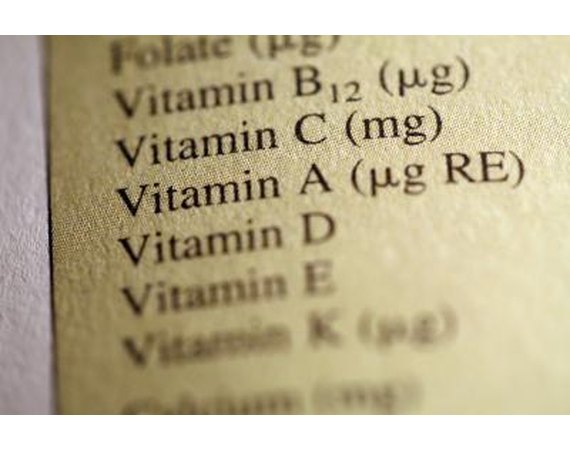
Food is by far the best source of nutrients for children, but many parents supplement their child's diet with daily multivitamins without really knowing whether they are doing the right thing. In most cases a vitamin supplement won't do any harm, but it's important to consider each child's specific needs, taking into account his diet and general health.
Expert Opinion

Experts continue to debate whether a daily multivitamin supplement is advisable for children. According to the American Academy of Pediatrics, a child should only be given a supplement if her doctor recommends it. Multivitamins aren't necessary for most healthy children who are growing normally, Jay L. Hoecker, M.D., tells Mayo Clinic. If a child has a chronic disease, an eating disorder or is failing to thrive, however, she may benefit from a supplement.
Balanced Diet

Most experts agree that if a child's diet fulfils his nutritional needs, a multivitamin supplement is unnecessary. If there are certain vitamins or minerals lacking in a child's diet, a daily supplement may be a good way to fill the gaps, provided it doesn't go over the child's recommended daily allowance, or RDA, for any vitamin or mineral. This may apply to vegetarian children, or kids who have allergies or intolerances to certain foods. Vitamin B12, vitamin D, riboflavin and calcium may be lacking from a vegetarian diet, says BabyCenter, the award-winning pregnancy and parenting website.
Vitamin D

The American Academy of Pediatrics recommends a daily supplement with 400 IU of vitamin D for all children, from infants (including breastfed babies) to teenagers, because most youngsters don't get enough of it. Too little vitamin D can lead to rickets, a bone-softening disease that continues to be reported in American children under the age of 2, warns HealthyChildren.org.
Considerations

A lot of foods, such as breakfast cereal and orange juice, are fortified with nutrients, including B vitamins, vitamin D and iron. Parents should check all labeling on packages, because children could be getting more vitamins and minerals than they think. Parents should also be aware that too much of certain vitamins can affect the absorption of others, leading to an imbalance. Too much iron, says the UK's National Health Service, can cause stomach pains, vomiting and nausea, and in extreme cases can even be fatal. If you have concerns about your child's vitamin levels, ask your health care provider for advice. If a supplement is recommended, make sure you choose one that is appropriate for your child's age and does not contain over 100 percent of the RDA of vitamins and minerals.
0 komentar:
Posting Komentar